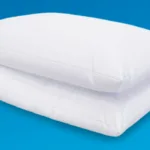If you’re intending to relocate your piano to NYC, it’s critical to understand the dos and don’ts. Moving a piano can be a difficult and stressful operation, but with the proper information and planning, you can minimize any potential harm to your instrument. We’ll go through the dos and don’ts of relocating your piano in NYC in this article to help you prepare for a successful transfer.
Dos of Moving Your Piano in NYC

Do Hire Professional Piano Movers
Relocating a piano is a difficult and delicate task that necessitates expertise and experience. Professional piano movers who specialize in transferring musical instruments are required. We have a team of skilled piano movers that are trained to handle all varieties of pianos, from uprights to grand pianos, at Empire Movers. Our movers are outfitted with the necessary tools and equipment to ensure the safe and secure transport of your instrument.
Do Prepare Your Piano for the Move
There are a few things you can do to prepare your piano for the transfer before the movers come. To begin, separate and pack all music sheets, pedals, and other equipment. This will avoid any loss or harm during the migration. Second, use a blanket or piano cover to protect the piano from scratches and dust. Next, to ensure a perfect fit, measure both the piano and the space where it will be moved.
Do Choose the Right Location for Your Piano
It is critical to choose the correct location for your piano in order to retain its quality and longevity. When relocating your piano, choose a spot away from direct sunshine, humidity, and high temperatures. It is also recommended that the piano not be placed near windows or doors where it could be exposed to drafts.
Don’ts of Moving Your Piano in NYC
Don’t Move Your Piano Alone
Moving a piano by yourself is not suggested because it can be hazardous to both you and your instrument. Pianos are heavy and strangely shaped, necessitating the need for specialist equipment and techniques while moving them. It’s important to contact professional piano movers who understand how to manage this delicate item.
Don’t Neglect Piano Maintenance
Neglecting piano care can result in harm and a decline in its quality. It is critical to tune, clean, and maintain your piano on a regular basis. Before the relocation, tune your piano and inspect it for any repairs or maintenance that may be required.
Don’t Rush the Moving Process
Relocating a piano takes time and careful planning. Rushing the process may result in damage to your instrument. Allow yourself plenty of time to prepare and plan for the relocation. Communicate with your piano movers and provide them with any information they require to ensure flawless transport.
Tips for Protecting Your Piano During the Move
Moving a piano might be a scary process, but there are a few things you can do to protect your instrument:
Lock the Lid: Make sure the lid is securely fastened in place to prevent it from opening during the move. This can assist in avoiding harm to the piano’s interior components.
Wrap the Piano: Protect the piano from scratches, dust, and other damage by wrapping it in a blanket or specialized piano cover. Avoid using plastic or bubble wrap, since they can trap moisture and damage the piano’s finish.
Disassemble if Necessary: If your piano is a grand piano or if it must pass through tight locations, you may need to disassemble it. Our piano movers have the necessary tools and skills to safely disassemble and reassemble the piano.
Employ Appropriate Moving Equipment: To transport the piano safely, use specialist moving equipment such as piano skids, harnesses, and dollies. Our skilled movers have access to these specific tools and equipment to ensure a smooth transition.
Inspect the Weather: If you’re moving your piano in the winter, be sure it’s not exposed to harsh temperatures or dampness throughout the journey. This can result in harm to the piano’s interior components.
Advantages to learning the dos and don’ts of moving your piano in New York City
Protects Your Piano: Understanding how to move your piano in NYC correctly will assist prevent harm to the instrument. You may ensure that your piano arrives in pristine condition by following the dos and don’ts.
Saves Time and Money: Relocating a piano in New York City can be both time-consuming and costly. Following the dos and don’ts will guarantee that the transfer goes smoothly, saving you time and money in the long run.
Reduces Stress: Moving can be a difficult process, but knowing the dos and don’ts of moving your piano can help. Working with expert piano movers who use proper practices can give you peace of mind that your piano is in good hands.
Prevents Injuries: Moving a piano can be hazardous, especially if you lack the necessary equipment or experience. Following the dos and don’ts can assist you and your movers avoid injuries, ensuring that everyone engaged in the relocation is safe.
The dos and don’ts of moving your piano in NYC can help safeguard your instrument, save time and money, decrease stress, and prevent injury. Working with experienced piano movers that use suitable practices will ensure that your piano arrives in pristine condition at its new location.
Conclusion
Relocating your piano in New York City might be a difficult undertaking, but with the proper information and planning, you can avoid any potential harm to your instrument. You may prepare for a safe and secure piano move by following the dos and don’ts provided in this guide.
Empire Movers specializes in piano moving services and is available to answer any questions or concerns you may have. Call us today to arrange for the best piano movers in NYC to relocate your piano.






